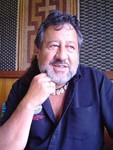Open universities to Maori - Sharples
Maori Affairs and Associate Education Minister Dr Pita Sharples called for universities to consider open entry for Maori students.
Speaking at the Matariki dinner last night at Te Herenga Waka marae at Victoria University, Dr Sharples said many Maori are ill-prepared by schools to enter into the culture of university study.
“Why is it that, in 2007, only 63% of young Maori men, and 67% of young Maori women, left school with at least NCEA Level One?” Dr Sharples asked.
He described this as a legacy of colonisation and successive governments’ education policies over the past century.
“Success at school is the strongest predictor of success after the first year of university; and success in the first year is the strongest predictor of continuing at university, passing courses, and completing a degree. So the dice are loaded,” he said.
Dr Sharples noted that Maori participation in tertiary education is higher than for any other ethnic group, but that much of that is at Levels One to Three on the National Qualifications Framework.
Dr Sharples said that imbalance had to be righted. He said universities have a role to play, “but I think this might require a radical rethink of what education is and how it takes place.”
“I want to suggest a quantum leap could be achieved, if Victoria were to consider the following:
- Open entry for Maori students. We have seen how the dice are loaded against Maori, right through the school system. That is not any reflection on the academic potential of our young people. Reserved places for Maori have proven the ability of Maori students to rise to the challenge if they are given the opportunity.
- Mentoring and support for Maori, that teaches the culture of academic learning to Maori students. For many the difficulty is not the course content, but the style of teaching, assessment and examination.
- Recognition of the validity of kaupapa Maori, as equally valid and appropriate for education as academic tradition, to Maori students who are entering the 21st century.
Efforts to close so-called education gaps, since the Hunn Report in 1960, have not been successful, as shown in two surveys by the Ministry of Education and Te Puni Kokiri in 1999 and 2000. Dr Sharples says this is because efforts have largely focused on the student, and not on the way the system delivers education.
“The fundamental values of kaupapa Maori education play a vital part in a vision of education which builds enduring relationships withy iwi, which embraces and cares for Maori students, and which is repared to be brave and step beyond conventional teaching and learning approaches,” he said.
Dr Sharples believes kaupapa Maori education is making a difference.
“Over ten years from 1997, working-aged Maori with a bachelor’s degree or higher rose from 2% to 7.1% - fantastic!
“I believe these figures reflect the success of kaupapa Maori education in raising super-confident learners who have taken ownership of their world. They also reflect the role of wananga in promoting the whole idea of access to tertiary education, and creating pathways into universities,” he said.
“Maori have entered tertiary education with enthusiasm, and they have demonstrated that they do best when they take their kaupapa Maori with them,” said Dr Sharples.
